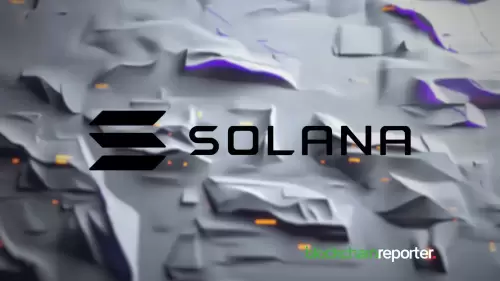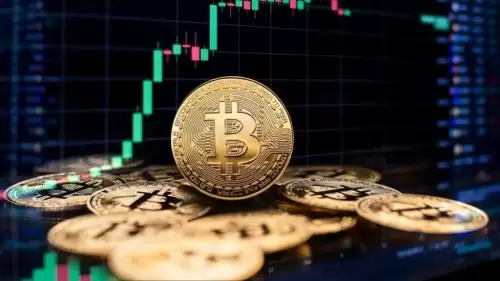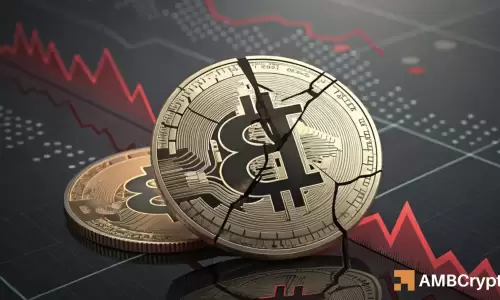 |
|
 |
|
 |
|
 |
|
 |
|
 |
|
 |
|
 |
|
 |
|
 |
|
 |
|
 |
|
 |
|
 |
|
 |
|
Articles d’actualité sur les crypto-monnaies
World Network, the digital identity and crypto project of Sam Altman's OpenAI, has alarmed privacy activists ahead of its United States launch
May 14, 2025 at 03:11 pm

World, the digital identity and crypto project by Sam Altman’s OpenAI, is rolling out its iris-scanning technology and crypto token payout scheme in the United States.
However, ahead of the launch, privacy activists have sounded the alarm over the project’s data collection and protection practices.
While the project claims to be protecting user privacy in the age of proliferating AI, it’s faced a slew of regulatory concerns across the globe.
World’s latest foray into the US could prove to be CEO Sam Altman’s biggest challenge yet, where privacy concerns are heightened by a patchwork of enforcement that differs state by state.
World’s US expansion brings varied privacy laws and potential for discrimination
On April 30, Altman announced that World would be setting up in “key innovation hubs” in five states in the US: Atlanta, Austin, Los Angeles, Miami, Nashville and San Francisco.
Would-be verified humans can scan their irises at these hubs, giving World unique biomedical markers. These markers, in turn, can be used to interact with others on digital platforms in a way that is verifiable and human-led.
But as World expands into the US, an uncertain regulatory landscape could put people off and make it difficult for the platform to build user trust.
Andrew Rossow, a cyber and public affairs attorney at Rossow Law, told Cointelegraph that there is no comprehensive federal law specifically regulating biometric data (such as iris scans) in the US.
Instead, laws differ state by state. Two states in which World will operate, Texas and California, have some form of legal protections in place for biometric data.
World users in the remaining three states, Georgia, Tennessee and Florida, must rely on federal law, which requires that companies must be transparent and fair, but there are no special state rules for iris scans.
However, even the existence of state law is no guarantee of protection. In Texas, there is no private right of action for biometric data — only the state attorney general (AG) can enforce the state’s Capture or Use of Biometric Identifier law.
“The effectiveness of user data protections, as it pertains to World, hinges almost entirely on the Texas AG’s priorities, resources and willingness to act,” said Rossow. A more aggressive AG could mean more robust protections, while “a less aggressive administration could deprioritize enforcement, which leaves consumers open and vulnerable to exploitation.”
The potential for exploitation is one of the key factors driving activist efforts against systems like World’s.
Privacy International, a privacy protection group that supported legal action in Kenya against World, notes that in “the absence of strong legal frameworks and strict safeguards, biometric technologies pose grave threats to privacy and personal security, as their application can be broadened to facilitate discrimination, profiling and mass surveillance.”
As far back as 2021, Amnesty International had raised concerns over discrimination and biometric systems’ applications of dubious methodologies. Such systems, they said, can “make inferences and predictions about things such as people’s gender, emotions, or other personal attributes, suffer from serious, fundamental flaws in their scientific underpinnings.”
World faces mounting bans and legal action
OpenAI may be doubling down on an American strategy, but other jurisdictions around the world are increasingly investigating, limiting or banning the firm’s activities.
In 2023, regulators in India, South Korea, Kenya, Germany and Brazil began investigating the firm’s data collection practices. Spain became the first country to place a complete ban on World in March 2024.
The Spanish Data Protection Agency previously told Cointelegraph that its course of action was based on reports from Spanish citizens. It claimed that Orb operators provided insufficient information, collected data from minors and even failed to allow withdrawal of consent.
Following the move, World stated that it operates lawfully in all of the locations in which it is available.
However, global regulators disagreed. Hong Kong followed suit in May 2024 and ordered World to cease operations as it was allegedly breaching the city-state’s Personal Data Privacy Ordinance.
Further accusations of improper data collection practices followed, and a number of countries like Germany and, more recently, Kenya, have ordered World to delete the data of thousands of users, while Colombia and Argentina have issued hefty fines.
In January 2025, Brazil’s National Data Protection Authority banned World outright, citing concern over the irreversible nature of data collection and the potential for World to economically influence disadvantaged people with the promise of crypto for their data.
World is now rolling out its iris-scanning orbs for collecting user data and distributing crypto tokens in the United States.
The move comes amid a slew of legal and regulatory issues that the firm has faced in recent months.
Earlier this year, a group of privacy activists sued the crypto project in California to try to block it from launching in the U.S.
Clause de non-responsabilité:info@kdj.com
Les informations fournies ne constituent pas des conseils commerciaux. kdj.com n’assume aucune responsabilité pour les investissements effectués sur la base des informations fournies dans cet article. Les crypto-monnaies sont très volatiles et il est fortement recommandé d’investir avec prudence après une recherche approfondie!
Si vous pensez que le contenu utilisé sur ce site Web porte atteinte à vos droits d’auteur, veuillez nous contacter immédiatement (info@kdj.com) et nous le supprimerons dans les plus brefs délais.
-

- Velo Universe, Dex et Defi Security: naviguer dans l'avenir du trading décentralisé
- Aug 05, 2025 at 07:45 am
- Exploration de l'évolution des échanges décentralisés (DEX) en mettant l'accent sur l'univers Velo, la sécurité Defi et la transition vers des plateformes de trading transparentes centrées sur l'utilisateur.
-

- Le portefeuille Bitget révolutionne Solana avec des transactions sans gaz: une nouvelle ère pour Defi
- Aug 05, 2025 at 07:36 am
- Bitget Wallet conduit la charge pour rendre Solana plus accessible avec des transactions sans gaz, simplifiant Defi pour tout le monde. Découvrez comment cette innovation remodèle l'expérience utilisateur.
-

- Ozak Ai, Boom crypto et potentiel de retour sur investissement: est-ce la prochaine grande chose?
- Aug 05, 2025 at 07:30 am
- Plongez dans le potentiel d'Ozak Ai dans le boom de la cryptographie. Ses outils commerciaux alimentés par l'IA peuvent-ils fournir un retour sur investissement explosif? Nous explorons les tendances et les idées.
-

- Les ETF de Solana et la poursuite de tous les temps High: Sol est-il défini sur Soar?
- Aug 05, 2025 at 07:30 am
- Le buzz de Solana est de retour! La spéculation du FNB, la croissance du réseau et la manie de la pièce mème pourraient pousser Sol vers un nouvel ATH. Mais y a-t-il d'autres joueurs dans le jeu?
-

-

-

-

- Bitcoin, Michael Saylor et Stratégie: un mastodonte de transformation numérique
- Aug 05, 2025 at 07:01 am
- Explorez la stratégie de Bitcoin audacieuse de Michael Saylor, les avoirs massifs de Microstrategy et le paysage évolutif de l'adoption de la cryptographie d'entreprise. Wall Street se fait-il enfin?
-

- Les détenteurs de Bitcoin se préparent à la sortie du marché au milieu des signaux baissiers
- Aug 05, 2025 at 07:00 am
- Les détenteurs de bitcoins à long terme montrent des signes de sortie du marché en tant que statistiques clés flash les signaux baissiers, suggérant une correction potentielle malgré des prix élevés.





























































